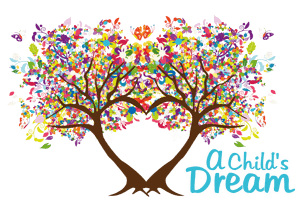Postpartum depression is a serious problem, but at least it’s one that most expectant mother know to watch out for. A related condition that’s received less attention is prenatal or antepartum depression – depression that occurs sometime during the pregnancy, rather than after.
Birth mothers who plan to give their baby up for adoption may be at particular risk for developing prenatal depression. Here’s what you need to know.
What Is Prenatal Depression?
Prenatal or antepartum depression affects between 14 and 23 percent of pregnant women. The symptoms are similar to those experienced by mothers with post-partum depression – anxiety, sadness, worry, feelings of hopelessness, and sleep disturbances.
However, some evidence suggests that symptoms are more severe for women who develop them during the pregnancy, rather than later. Expectant mothers may feel more intense sadness, more difficult sleep disturbances, and occasional paranoia.
What’s more, depression during pregnancy is linked with pregnancy complications, which could result in health problems for both mother and baby. Some of the problems associated with depression during pregnancy include preeclampsia, which is dangerously high blood pressure during pregnancy, as well as low birth weight and premature labor and delivery.
Who Is At Risk for Prenatal Depression?
Prenatal depression is most likely caused, at least in part, by hormonal changes associated with pregnancy, much like postpartum depression. Any expectant mother could develop prenatal depression. However, birth mothers who are planning an adoption could be at increased risk.
Prenatal depression is linked to a variety of possible risk factors, including smoking or a previous history of depressive episodes. But some risk factors, like an unintended pregnancy, single status, lower income, and life stress, are also factors that are commonly experienced by expectant mothers who plan on having their baby adopted.
Even when you’re sure that your decision to choose adoption is the right choice for you, being a birth mother comes with its own unique challenges that may increase your risk of developing depression during your pregnancy. Be aware of the possibility of developing depression so that you can ask your doctor about appropriate treatment.
How Is Prenatal Depression Diagnosed?
Only a doctor can diagnose you with prenatal depression, so keep your doctor updated on how you’re feeling – not just physically, but mentally and emotionally as well. Expectant mothers commonly fail to report symptoms of prenatal depression, especially as they often don’t know that prenatal depression is a possibility.
You may find it difficult to tell what is and isn’t normal during pregnancies. Sleep disturbances during pregnancy, for example, are common among pregnant women who have depression, but they’re also common for pregnant women who don’t have depression. That’s why it’s recommended that doctors screen their patients for depression, but it’s also important for patients to speak up.
Your best bet is to err on the side of caution. If something seems important enough that you consider mentioning to your doctor, then it probably is important. If you experience sadness, anxiety, or worry to such an extent that it disrupts your normal routine or activities, then you should definitely say something.
Most importantly, if feel that you’re suffering, you should speak up. Don’t be embarrassed or hesitant – you deserve to get through your pregnancy without unnecessary suffering.
How Is Prenatal Depression Treated?
Prenatal depression can be treated in a variety of ways. Counseling or therapy can be very effective at helping expectant mothers manage prenatal depression. If you work with an adoption agency, you should have an adoption counselor who may be able to help you cope with depression or refer you to a qualified therapist.
Support groups can also be a helpful way for expectant mothers to cope with prenatal depression. In a support group, you’ll be able to share your feelings with other women who are experiencing similar things.
As a birth mother, you may want to look for a support group specifically for birth parents or people impacted by adoption. Organizations like the American Adoption Congress maintain state-by-state lists of support groups, including groups specifically for birth parents.
Medications and medical interventions like electroconvulsive therapy (ECT) are also possibilities, but carry risks for pregnant women and their babies, but they can also have benefits for both mother and child, especially in more severe cases of depression. Each case is different, so you’ll have to talk to your doctor about the risks and benefits of medications or medical interventions for you.
Early diagnosis and treatment can lessen the impact of prenatal depression and prevent it from becoming more severe, so be sure to mention it to your doctor if you feel that you may be at risk or experiencing symptoms.
Prenatal depression is very treatable and doesn’t have to ruin your pregnancy, delivery, or adoption experience. Counseling offered by a
good adoption agency can help you cope with depression and other obstacles during your pregnancy.


